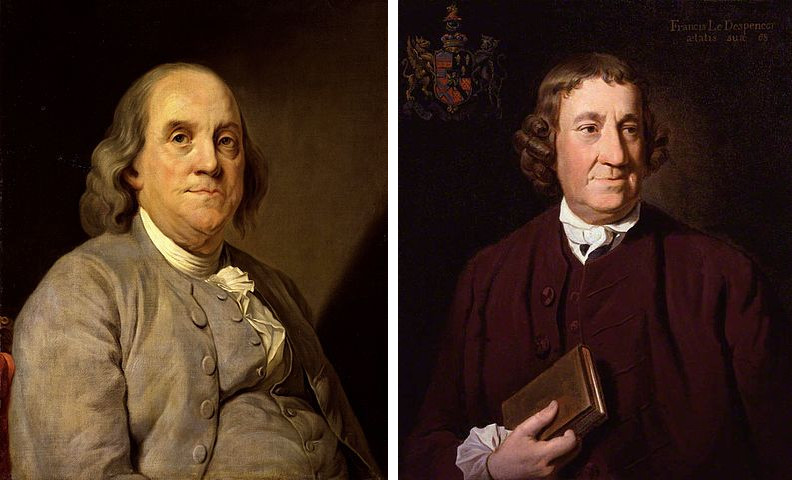
Benjamin Franklin and Sir Francis Dashwood once set out to shorten the Book of Common Prayer. Noel Perrin writes in Dr. Bowdler’s Legacy:
Franklin and Dashwood had made contact while each was a postmaster general, and found themselves agreeing that the great trouble with church services is that they are too long. They then put out their anonymous Abridgement of the Book of Common Prayer (1773), in which the communion service takes about ten minutes, and a funeral six. (‘The Order for the Burial of the Dead is very solemn and moving; nevertheless, to preserve the health and lives of the living, it appeared to us that this service ought particularly to be shortened,’ Franklin wrote jauntily in the preface.) The book could be called expurgated only in the sense that Franklin and Dashwood both disapproved of Old Testament ideas of vengeance, and therefore omitted the service of Commination and all psalms which contain maledictions.
In 1785 Franklin wrote to Granville Sharp, “The Liturgy you mention was an abridgment of that made by a noble Lord of my acquaintance, who requested me to assist him by taking the rest of the book; viz., the Catechism and the reading and singing Psalms. These I abridged by retaining of the Catechism only the two questions, What is your duty to God? What is your duty to your neighbour? with answers. The Psalms were much contracted by leaving out the repetitions (of which I found more than I could have imagined) and the imprecations, which appeared not to suit well with the Christian doctrine of forgiveness of injuries and doing good to enemies. The book was printed for Wilkie, in St. Paul’s Churchyard, but never much noticed. Some were given away, very few sold, and I suppose the bulk became waste-paper. In the prayers so much was retrenched that approbation could hardly be expected; but I think with you, a moderate abridgment might not only be useful, but generally acceptable.”
(Richard Meade Bache, “The So-Called ‘Franklin Prayer-Book,'” Pennsylvania Magazine of History and Biography 21:2 [1897], 224-234.)
